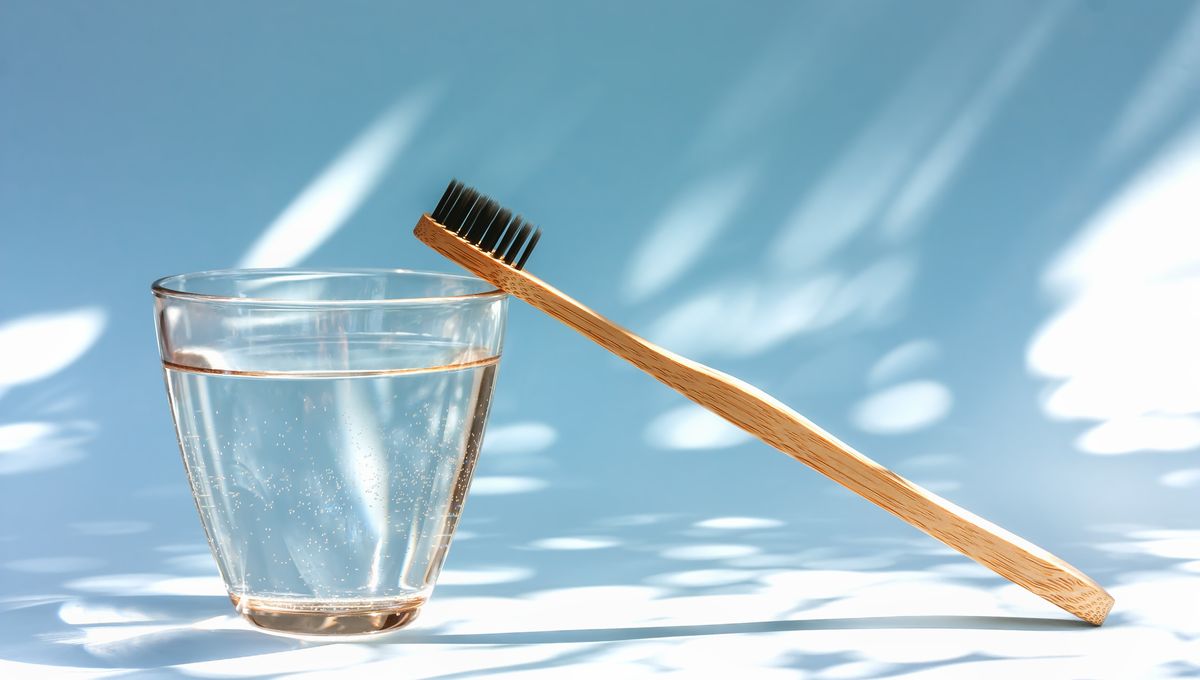
Do you rinse your mouth after brushing your teeth? Maybe you use water, or maybe you favor a mouthwash, thinking that it’s better for oral health. They even sell little cups specifically to keep in the bathroom, so surely you’re supposed to rinse, right? Wrong. We’re about to reveal a secret that’s guaranteed to catapult you up the list of your dentist’s favorite patients.
You’re not actually supposed to rinse away the toothpaste residue when you’re done brushing. Nope, not even with mouthwash.
The main active ingredient in most toothpastes is fluoride. For example, Oral B explains on their website that their toothpaste may contain both fluoride and stannous fluoride, the purpose of which is to slow the breakdown of tooth enamel, inhibit plaque production, and prevent cavities.
You may come across toothpastes formulated without fluoride, or so-called “natural” toothpastes, which are increasingly widely available. Some may contain ingredients like charcoal, which supposedly helps to whiten teeth, but the evidence base for this is scant. There’s also emerging evidence that an ingredient called hydroxyapatite might be a viable alternative to fluoride in the future.
Right now, though, most dentists agree that a fluoride-containing toothpaste is your best option to promote long-term dental health, as periodontist Dr David Okano told the University of Utah’s Health Library podcast: “All things being equal, you would see less potential for tooth decay in [an] individual who was using […] fluoride-containing toothpaste.”
And fluoride is safe when used according to the directions on the packaging (no swallowing!), so for most people, there’s no good reason to switch.
Now, back to this rinsing thing. While we might be totally okay with using toothpaste for brushing, many people don’t like the feeling it leaves behind afterward. For lots of us, rinsing feels like the natural thing to do. But oral health experts say you should really try and get used to not doing that.
“Once you’ve brushed, don’t rinse your mouth with water or mouthwash – you’re washing away the fluoride!” explained Drs Clement Seeballuck and Nicola Innes, both pediatric dentistry experts, in a piece for The Conversation. “This can be a difficult habit to break, but can reduce tooth decay by up to 25 percent.”
Okay, so no rinsing with water. What about mouthwash? That has fluoride too, right?
“Using a mouthwash that contains fluoride can help prevent tooth decay, but don’t use mouthwash (even a fluoride one) straight after brushing your teeth or it’ll wash away the concentrated fluoride in the toothpaste left on your teeth,” explains the UK’s National Health Service.
So, you can either save yourself some money and stop buying mouthwash, or make sure you only use it at other times of day, like after lunch. Similarly for oil pulling, if that’s your bag – the goal is basically to keep all the fluoride from your toothpaste on your teeth for as long as possible.
Flossing, though – that one’s not optional. At least, not if you want to minimize your risk of gum disease, which can lead to tooth loss. But are you flossing correctly? Luckily for you, we can help with that too.
The content of this article is not intended to be a substitute for professional medical advice, diagnosis, or treatment. Always seek the advice of qualified health providers with questions you may have regarding medical conditions.
Source Link: You’re Not Actually Supposed To Rinse Your Mouth After Brushing Your Teeth